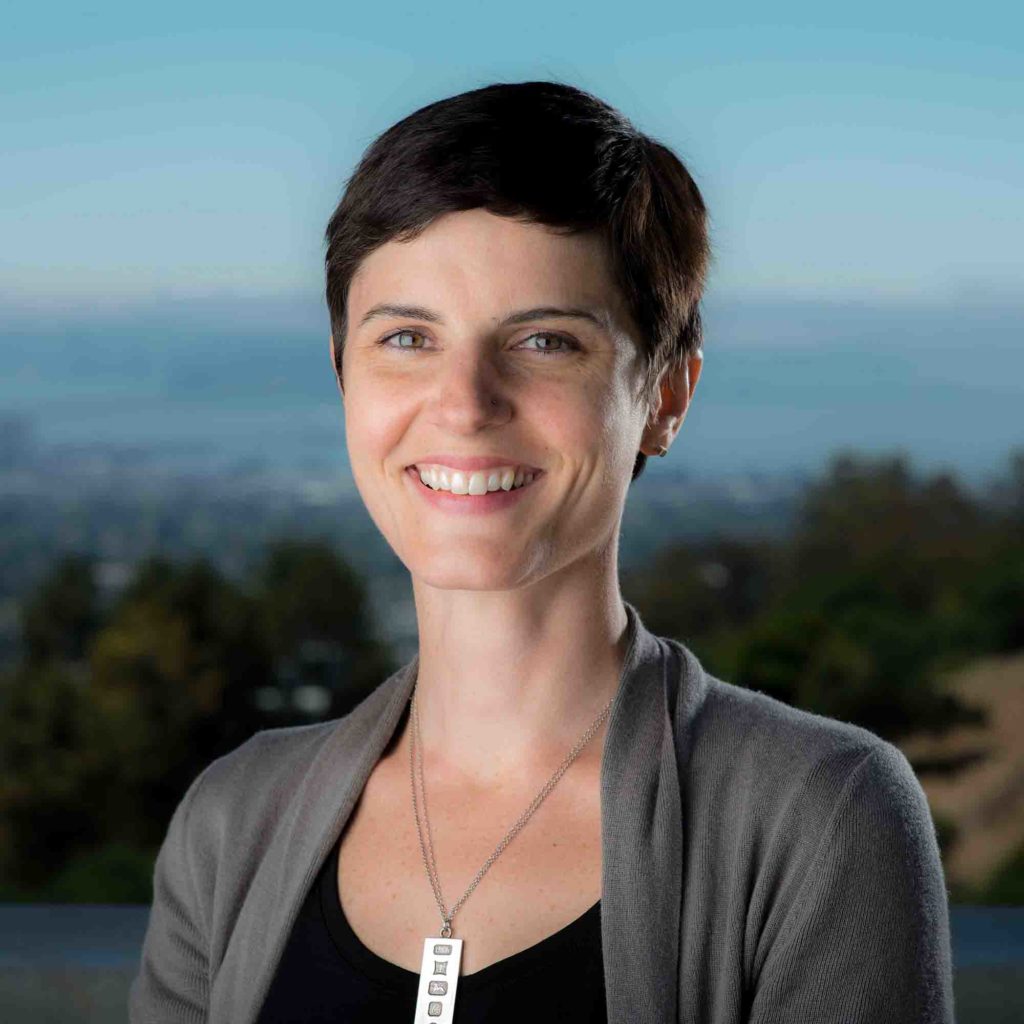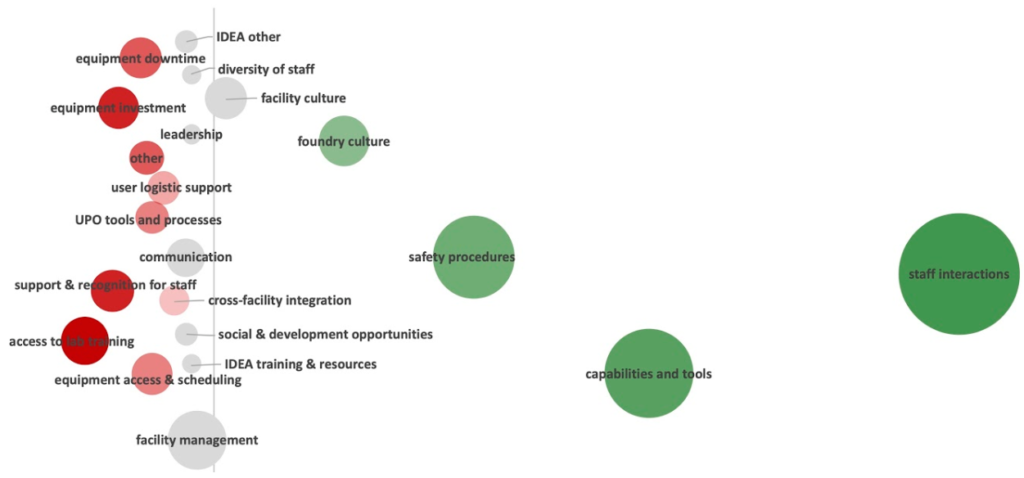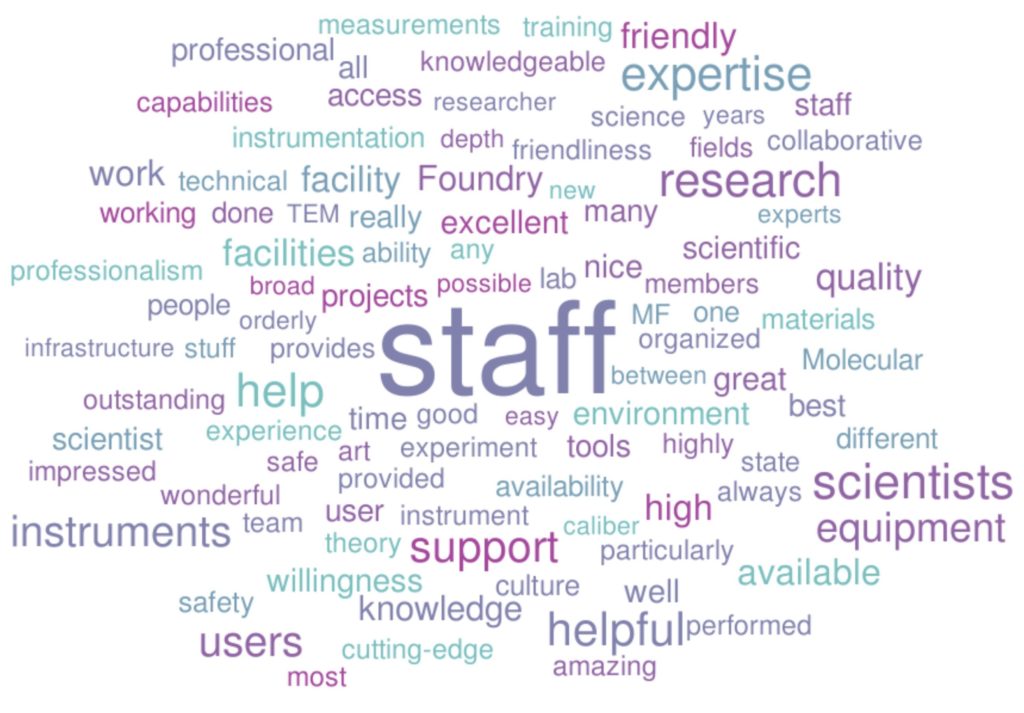Dear Molecular Foundry Users,

In late 2019, the Molecular Foundry User Office compiled the results of our annual User Satisfaction Survey. Over 300 users responded this year, and I’d like to thank everyone who took the time to share their thoughts with us. Your feedback through this survey is an important mechanism to help us in our efforts to continually improve our user program. Each year, we also send the results to our funding agency, the U.S. Department of Energy.
The high-level takeaway from the survey results is that users report a high level of satisfaction and are happy with the culture of the Foundry. We also analyzed more than a thousand comments, which again indicate a high level of satisfaction but also reveal some areas in which we can improve.
The questions about user satisfaction indicate that the majority of users are very satisfied with equipment performance, staff support, the fraction of the year the facility operates, and scheduling and instrument availability. The average scores for each question are shown below.
We note that the average satisfaction with scheduling and instrument availability is lower than in past years, dropping from 4.8 in 2016 to 4.5 in 2019 on a 5-point scale, with 13 of the 2019 respondents saying they are dissatisfied or very dissatisfied. Several of the dissatisfied users mentioned specific tools that they were unable to use, including the ALD and the NCEM FIB, due to extended downtime or heavy use. We are currently working to restore the ALD, which was damaged again during the second power shutdown in 2019, and will continue to try and optimize scheduling for heavily-subscribed tools while also pursuing any opportunity to augment and improve our capabilities.
Three years ago, we introduced several questions about the culture of the Foundry, to gauge whether users feel welcome, respected, and able to participate in a scientifically stimulating community. We are pleased to see that once again the majority of users report a positive culture at the Foundry. Since the questions were first introduced in 2017, the average scores have ranged from 4.5 to 4.7 on a 5-point scale. These high average scores on culture are great, but we note that 12 respondents said they disagreed or strongly disagreed with one or more of the culture questions, which is nearly 4% of all respondents – a non-negligible number. The high scores may also seem to be in contrast with what many of you heard at our User Meeting last August, when a Foundry user talked about her experience raising a complaint of sexual harassment and her frustration with the Lab’s response. The message of that presentation continues to reverberate at the Foundry, where we aspire to be excellent in culture the same way we are excellent in science and safety. We are committed to ongoing growth and improvement in this area and thank you for your honest feedback.
We also received a large volume of feedback through the survey comments. These comments were analyzed and processed to provide quantitative context by tagging each comment with the topic areas that it pertained to, as well as assigning a positive or negative score to the flagged topic. The resulting visualization, shown below, helps us to quickly identify the areas where users largely agree that we excel (interactions with staff, capabilities and tools, and safety procedures) as well as areas where many users identify challenges (access to lab training, and equipment investment).

In the next few days, each of our Facility Directors (FDs) will send a follow-up email to users of their facility, addressing the feedback that specifically pertained to that facility. One frequent theme is the need for new or replacement equipment. The FDs will provide more detail on our current equipment priorities in each facility. You may also refer to the Foundry’s strategic plan, which includes an annually updated list of investment priorities.
Many comments, however, are not facility specific. Regarding the user program, a few themes emerged as critical feedback.
- Ease of access. Users report frustrations with getting badges, getting trained, and the sometimes-slow onboarding process. These challenges are most frustrating for international users who come to the Foundry for a short time, who have been impacted by a new mandate from DOE this past Spring that changed the Lab’s site access review process for granting badges to international users. In response, we are evaluating our processes and looking for ways to streamline them, and are working with LBNL management to try and reduce delays in getting badges for international users.
- Funding or other assistance for travel, accommodation, and food. Unfortunately, we are not allowed to use our funding from DOE for any of these items for users. We are trying to raise funds for another travel grant program, similar to the one that supported several users in 2018. In terms of free food (requested by many respondents) we have a bi-weekly coffee hour for users, paid for by personal donations from staff.
- Proposal processes. Some users would like better information about how the processes work for submitting and evaluating proposals, and what happens throughout the subsequent proposal lifecycle. Suggestions were made for improvements to the User Portal and for modifications to the rules governing proposals (such as providing more submission periods). We are reading every comment and incorporating some ideas into our ongoing process revisions.
In addition to the constructive criticism, of course, respondents offered a great deal of generous positive feedback, praising our strong safety culture and cutting-edge capabilities, and sometimes thanking specific staff members for their support (Figure 4).
In 2020, we will start collecting user surveys at the end of each project, as well as providing an opportunity to weigh in at the end of the year. In the meantime, you can always send feedback to the UEC or the User Office at any time, and also raise concerns at facility meetings or directly to staff.
Thank you for being part of the Molecular Foundry!
Best regards,
Alison Hatt
User Program Director


